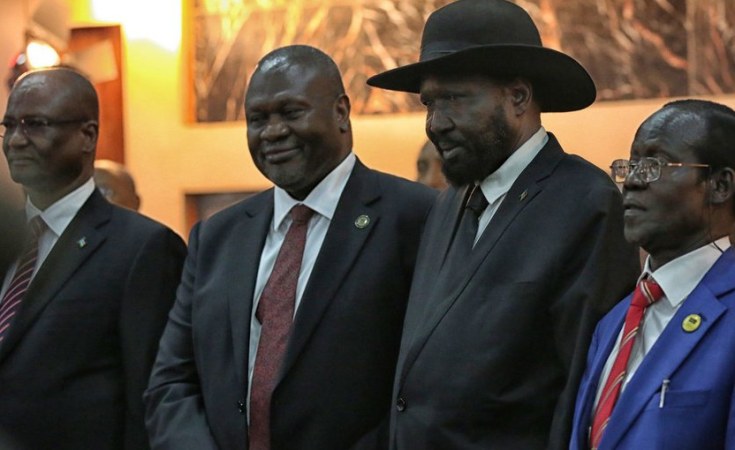Speaking at the opening of the meeting, RJMEC Interim Chairperson, Amb. Maj. Gen. Charles Tai Gituai said it is concerning that “barely seven months to the elections, there is still no evidence of sufficient preparation for the conduct of elections and implementation of critical election-related tasks.”
In his assessment of the Revitalised Peace Agreement, Amb. Gituai said these critical tasks, among others, include the full operationalisation and funding of the Political Parties Council (PPC), the National Elections Commission (NEC), and the National Constitutional Review Commission (NCRC), completion of Phase I and Phase II unification of forces, and making of a permanent constitution to guide the conduct of elections.
In addition, he said, the conduct by the NEC of elections-related such as establishment of subsidiary electoral management bodies at the state level, the establishment of procedures for the voter registry and registration, and support to civic education and voter outreach, the publication of the voters register six months prior to the holding of elections, are also pending.
He further stated that other pending tasks to be completed, include judicial reform process, review of the judiciary Act and establishment of the Constitutional Court and the enactment of the revised National Security Service Act (Amendment) Bill 2023 to, among others, create an enabling civic and political space for citizens’ participation in governance.
As such, he said, it is important that the inter-party dialogue be expedited to provide clarity on the way forward.
“This would help the South Sudanese to prepare sufficiently and enable timely mobilisation of resources by the regional and international community to support the process,” he said.
Furthermore, Amb. Gituai raised concerns on continued inter-communal violence in different parts of the country, such as in Tambura, Twic, and parts of Abyei region, saying:
“This underlines the critical importance of full unification of all forces and their redeployment to provide security in all parts of the country,” he said.
In his recommendation, the Interim Chairperson asked the Transitional Government and the Parties to dialogue in a collegial manner, build consensus, provide regular updates and a way forward on elections and complete the deployment of the unified forces and commence Phase II, without further delay.
In his conclusion, he said:
“Overall, it is important to underline that four years into the Transitional Period, relative progress has been made in the implementation of the Revitalized Peace Agreement. All efforts should therefore be made to consolidate the peace gains, and lay a firm foundation for lasting peace, development and prosperity for the people of South Sudan.”


